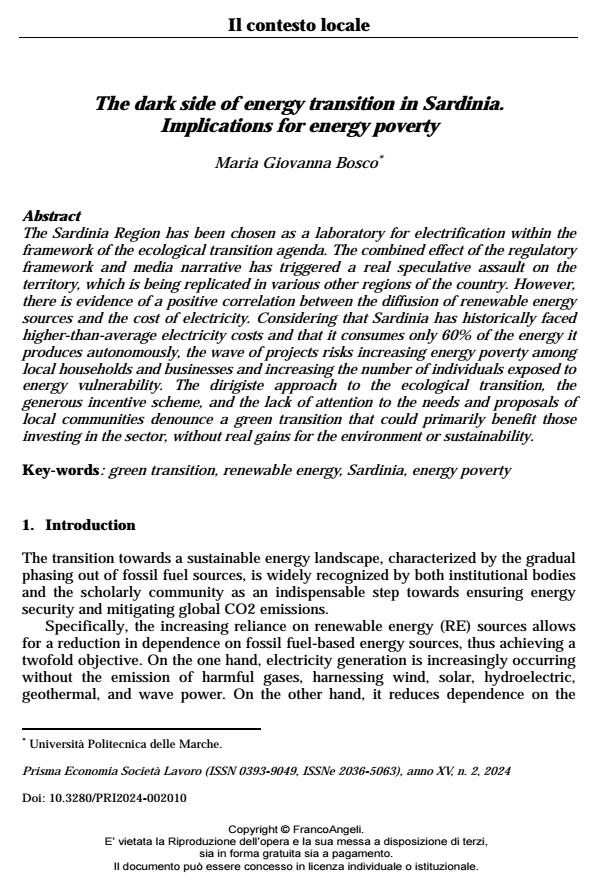The dark side of energy transition in Sardinia. Implications for energy poverty
Journal title PRISMA Economia - Società - Lavoro
Author/s Maria Giovanna Bosco
Publishing Year 2025 Issue 2024/2
Language English Pages 25 P. 122-146 File size 302 KB
DOI 10.3280/PRI2024-002010
DOI is like a bar code for intellectual property: to have more infomation
click here
Below, you can see the article first page
If you want to buy this article in PDF format, you can do it, following the instructions to buy download credits

FrancoAngeli is member of Publishers International Linking Association, Inc (PILA), a not-for-profit association which run the CrossRef service enabling links to and from online scholarly content.
The Sardinia Region has been chosen as a laboratory for electrification within the framework of the ecological transition agenda. The combined effect of the regulatory framework and media narrative has triggered a real speculative assault on the territory, which is being replicated in various other regions of the country. However, there is evidence of a positive correlation between the diffusion of renewable energy sources and the cost of electricity. Considering that Sardinia has historically faced higher-than-average electricity costs and that it consumes only 60% of the energy it produces autonomously, the wave of projects risks increasing energy poverty among local households and businesses and increasing the number of individuals exposed to energy vulnerability. The dirigiste approach to the ecological transition, the generous incentive scheme, and the lack of attention to the needs and proposals of local communities denounce a green transition that could primarily benefit those investing in the sector, without real gains for the environment or sustainability.
Keywords: green transition, renewable energy, Sardinia, energy poverty
Maria Giovanna Bosco, The dark side of energy transition in Sardinia. Implications for energy poverty in "PRISMA Economia - Società - Lavoro" 2/2024, pp 122-146, DOI: 10.3280/PRI2024-002010